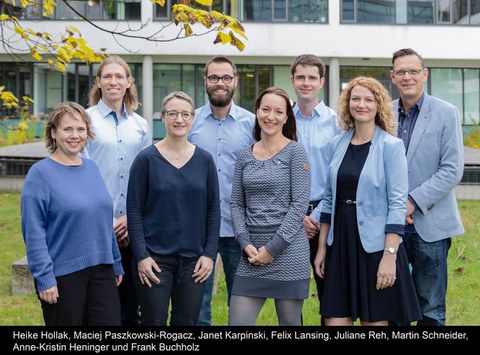Nov 30, 2020
Start-up RecTech is one of the winners of the 2021 Science4Life Venture Cup first phase
Within the business plan competition of the Science4Life Venture Cup 2021, 97 applicants presented their innovative business ideas and 5 teams were awarded with a prize for the best business idea. The BMBF-GO-Bio-funded start-up project RecTech, led by Prof. Dr. Frank Buchholz and Dr. Anne-Kristin Heninger, successfully convinced the reviewers with their idea to develop Designer-Recombinases as versatile genome editing tools for novel healing strategies of genetic diseases.
Science4Life e.V. is an independent founders' initiative, which was already founded in 1998 as a non-profit organization. Initiators and sponsors are the Hessian state government and the healthcare company Sanofi. Once a year, the initiative organizes the largest business plan competition in the fields of life sciences, chemicals and energy in Germany. The winning teams qualify for selected coaching workshops during the Academy Days (link).
The Dresden start-up project RecTech, led by Prof. Frank Buchholz and Dr. Anne-Kristin Heninger, is one of five start-up projects that received a prize for the best innovative business idea within the prestigious Science4Life Venture Cup (link). Frank Buchholz, Professor of Medical Systems Biology at the Medical Faculty of the TU Dresden and Anne-Kristin Heninger, leader of the RecTech project, are developing methods to correct or remove mutated sequences in the human genome. The introduced innovative genome editing technology is based on many years of research developing sequence-specific recombinases (SSRs) as an efficient and safe genome surgery tool. SSRs are enzymes that can precisely edit the genome of cells at a specific target sequence. In particular, these so-called Designer-Recombinases could be applied for the treatment of monogenetic diseases. Currently, more than 8,000 genetic modifications are known that lead to presently incurable diseases. RecTech's Designer-Recombinases will enable the development of new curative therapies for such diseases. Thus, the establishment of an innovative platform technology for the production of these tailor-made genome editing tools opens up a completely new market segment with promising commercial prospects in Dresden.
The team of Prof. Buchholz and Dr. Anne-Kristin Heninger has developed a promising business concept to establish a flourishing Biotech company in Dresden based on the recombinase technology. RecTech’s goal is to transfer the technology into broad clinical application in the near future.

